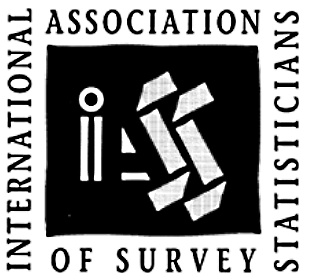"Adapting establishment statistics to new conditions"
ENBES - The European Network for Better Establishment Statistics - is pleased to invite you to submit abstracts and/or papers for the seventh European Establishment Statistics Workshop (EESW21). The workshop will be online, on 14-17 September 2021. It is (virtually) hosted by Statistics Netherlands (CBS) and the Office for National Statistics (ONS). The workshop will consist of four half days.
EESW21 is a prime European opportunity for like-minded official statistics methodologists, academic researchers and private sector professionals in the fields of business, economic and other areas of establishment statistics. The main purpose of the online event is to exchange experiences, meet people, share new methods and findings, learn and get inspired from each other, and create opportunities for deeper collaboration. It will include a variety of elements as in a traditional in-person workshop, such as a poster session where participants can meet each other. Like in our previous workshops, the number of registered participants will be limited to 55 in order to facilitate interaction. Authors of accepted abstracts will have priority for registration.
The production of establishment statistics has clearly been affected by COVID-19. Various adaptations to regular statistics were made, such as acceleration towards electronic data collection, adjustments for increased non-response, changes to imputation models, additional quality checks and new kinds of output. While EESW21 will not include a special session devoted to COVID-19, contributions on how production has been adapted to these new conditions are invited.
Under a broad heading of Adapting establishment statistics to new conditions, the workshop welcomes contributions on all topics related to establishment statistics: sample design, data collection, response process, editing and imputation, estimation, modelling, quality assessment, data presentation and dissemination, metadata and process data for establishment statistics, cross-national statistics, and similar. In practice, not all topics can be covered within the available time.
However, we especially would like to have contributions in the programme from each of the following four themes, which can contribute to addressing some emerging research questions:
- Data collection
What adaptions to data collection were necessary due to the pandemic?
How to estimate and treat mode effects in data collection?
How to estimate bias due to COVID-induced increased non-response?
- Making best use of alternative data sources
What are the main developments in methodology related to alternative data sources?
How to tackle unit errors, coverage errors and measurement errors with alternative data sources?
How can machine learning be harnessed to use more data sources?
How to integrate various data sources?
What is the quality of outputs based on or incorporating alternative data sources?
How to handle breaks in publication series when moving to alternative data sources?
- Quality considerations
What issues arise when fulfilling the need for quickly developing new output, such as for COVID-19?
What adaptions are needed for editing and imputation during economic crises?
What sources are available and what methods can be best used for nowcasting?
How to maintain the quality of statistics - and communicate it - in case of low response rates?
How to communicate quality issues, such as on structural quality improvements without derogating previous releases?
- Networks in establishment statistics
What new kinds of outputs can be made based on network analysis?
What possibilities are there to obtain data for network analysis?
How can we describe business/establishment networks?
What methods can be used in business analysis networks?
To organise a session on one of these topics, or to contribute a paper for such a session, we advise you early on - by March 1 at the latest – to get in touch with Arnout van Delden (a.vandelden@cbs.nl), Jillian Delaney (Jillian.Delaney@cso.ie) or Paul Smith (P.A.Smith@soton.ac.uk) to discuss its suitability for the programme. You can also contact them with other proposals for session topics and papers, or if you would like to get connected with other colleagues working on a particular research topic.
To submit a formal application for presentation of a paper/poster, please send an abstract of maximum 300 words – in a separate document as an attachment in pdf or docx format - to eesw@enbes.org, with the subject line the same as the abstract title. Please mention your name, affiliation and whether your submission is for a paper or poster. The submission deadline has been extended to April 15, 2021. We will inform you whether your paper/poster has been accepted by early May, 2021.
All accepted authors will be requested to provide a paper/poster to be circulated to the participants well in advance of the workshop, to aid their preparations. The draft paper should be between 3 and 5 pages long in the standard format. The poster (A3 size) can for instance be prepared in PowerPoint and saved as PDF. The authors will be free to use a template they prefer. PDFs of final papers will be made publicly available after the workshop, by publishing them in the ENBES scientific repository (http://www1.unece.org/stat/platform/display/ENBES/Scientific+Repository).
The program committee,
Arnout van Delden, Jillian Delaney, Ton Kwaak, Paul Smith and Wesley Yung



